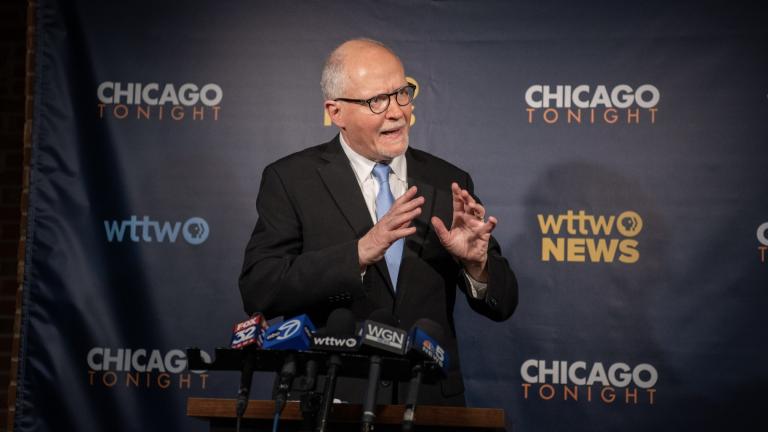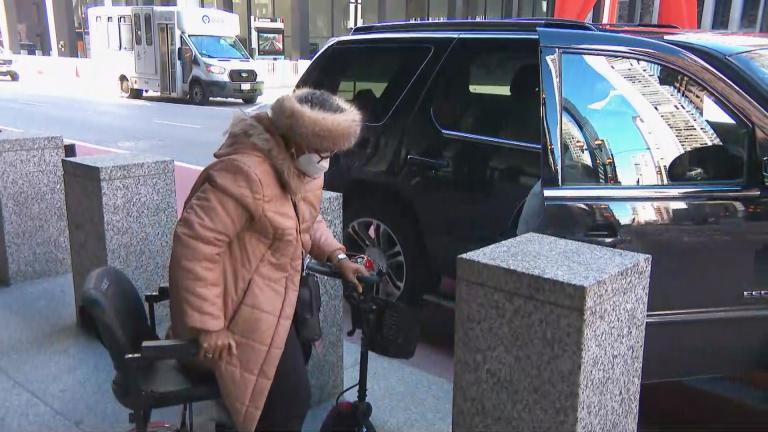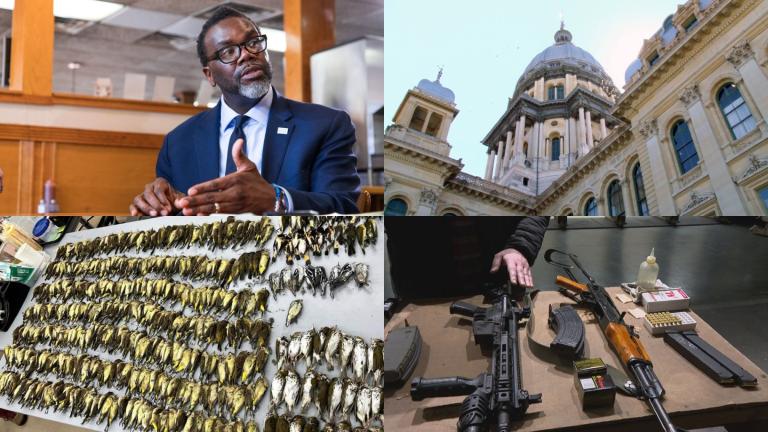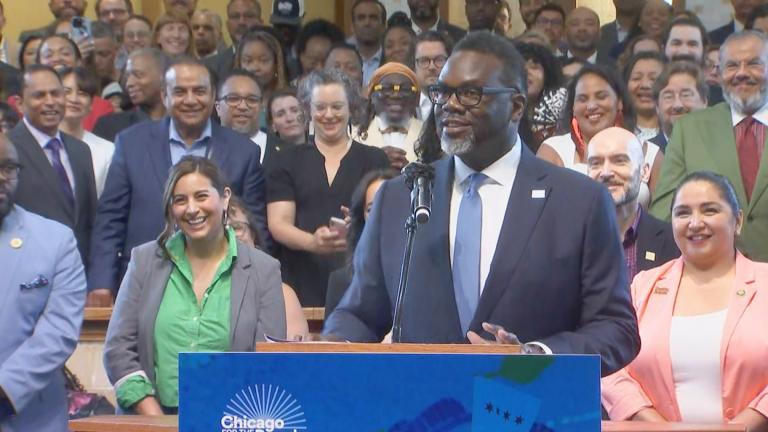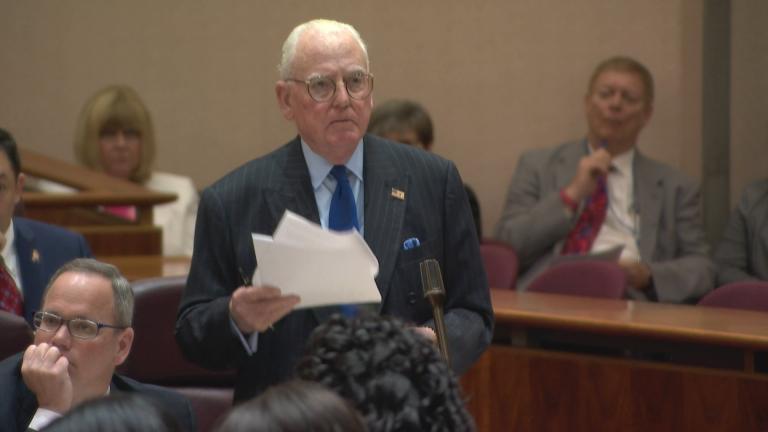The voters of Chicago have spoken, and the message is loud and clear: The next mayor needs new strategies to reduce Chicago crime.
The two contenders for Chicago’s mayoral runoff have differing views on how to address crime and violence. The two men vying for mayor, Paul Vallas and Brandon Johnson, faced off Tuesday at a single-issue forum focused on public safety.
At the debate, Vallas denied his comments that police officers were handcuffed. However, WTTW reported him saying exactly that back in December. He also said, “It is really time to make criminal activity illegal again,” and added, “It seems that people can simply commit crimes with impunity.” At a separate forum in December, Vallas lamented the “utter breakdown of law and order.”
Johnson, meanwhile, tried to distance himself from past statements about defunding the police. Those comments were made during a radio show that Vallas has used in campaign commercials. In Johnson’s 2020 appearance on the Santita Jackson Show on WCPT, he said, “President Barack Obama … basically said that the effort of the ‘defund the police’ movement lost an audience because of that ‘slogan,’ I guess is what he’s calling it. Which I don’t look at it as a slogan. It’s an actual, real political goal.”
When asked at the mayoral forum Tuesday if it was a “real political goal,” Johnson replied, “I said it was a political goal. I never said it was mine.” Furthermore, as the progressive candidate in a two-man runoff, Johnson has backtracked and said he would keep CPD funding at current levels.
Professor Robert Vargas of the University of Chicago’s Justice Project has studied Chicago Police Department funding over decades and found an increase in police officers and police funding after surges in homicides.
“Historically, what that has just contributed to is a mushrooming of a larger and larger police force,” Vargas said. “So this partially explains why Chicago has amongst the highest police per resident in the country because, as you’d think that after each one of these crises, there would be some accountability or some change of strategy.”
“At some point,” Vargas continued, “you just have to stop and ask, ‘OK, well, when do we start investing in something differently?’ And I don’t think that necessarily means, like, defunding or disinvesting from police. What it means is, instead of having more police officers per capita, maybe you invest in other roles within the police like detectives or like community policing or like alternative 911 mental health responders. Something different because you’re trying to fix a car and your solution is to just keep using a screwdriver over and over and over again. You’re not going to get anywhere.”
Vallas has said he wants Chicago police to be more proactive.
“The bottom line is — I’ve talked about it over and over again in columns, etc. — is to restore proactive policing and proactive policing that is consistent with the consent decree, and I’ve said that over and over and over again,” Vallas said.
It’s a sentiment that one former officer agrees with.
Peter Koconis is a retired police sergeant who served as a special assistant to Chicago police Superintendent Jody Weiss.
“When I came out and I worked on the tactical team, we were proactive,” Koconis said. “Now, when I had a tactical team and a gang team in my last assignment, we were more reactive, and I think that hurts you in a way.”
“People actually feel unsafe and underprotected,” Koconis continued, “and I agree. I think they are underprotected, and I think it is unsafe for them. And if it’s unsafe for them, it’s even worse for the police officers.”
Koconis also said there need to be more officers on the force.
“You need the blue shirts,” Koconis said. “You need the people that are on the streets, that are aware of their neighborhood, aware of their beats, constantly work the same area. You need to have a supervisor that is there with them on a daily basis. You put them in a group where the 10 or 12 officers are working the same watch, the same shift with the same sergeant, so they get to know the community.”
The founder of Mothers/Men Against Senseless Killings, or MASK Chicago, Tamar Manasseh, said the trust of people in Brown and Black communities and the Chicago Police Department is not there and may not be able to rebound without massive changes within the CPD. Her MASK volunteers have been hanging out on blocks in various communities since 2015 — not only to interrupt violence and crime but also to teach children to grow up as friends, not enemies.
“The police have such a toxic relationship with the Black and Brown communities in this city,” Manasseh said. “It almost needs to be completely torn down and rebuilt. Seriously. Like, dismantled. It should just be completely revamped.”
After more than nine years of being the eyes and ears of her community, Manasseh has a plan that could help police quell the violence.
“I feel like there’s a better way,” Manasseh said. “I feel like the people, … the community, should have a partnership with the police. And I’ve been advocating for years that you actually pay people in neighborhoods, give them a stipend to actually help watch out for their own neighborhoods to actually help patrol their neighborhoods, to keep the eyes out, kind of like what we do. But I realize everybody’s not gonna do that for free. And with it being such high unemployment in the neighborhoods where there’s high amounts of crime, to give people a stipend to, like, look out their windows, to sit on their porch, to positively loiter, that goes a long way.”

